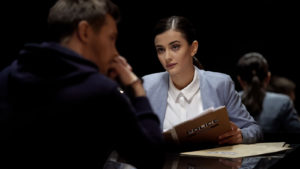
The decision made by a grand jury can determine if you face the indignity of an arrest, and the damage to your reputation that comes from being formally charged with a crime. If a grand jury indicts, you will need to navigate the criminal justice system successfully to try to avoid actually being prosecuted for and found guilty of a serious criminal offense. A Las Vegas defense lawyer should be consulted as soon as you believe you are at risk of being accused of a serious crime, so your lawyer can help you to try to avoid being indicted and can begin helping you prepare a strong case if the worst happens and an indictment is handed down.
LV Criminal Defense has extensive experience providing legal representation to clients who are being faced with the prospect of a grand jury indictment. We also provide dedicated legal advocacy to clients who have already been indicted and who need help responding to their criminal charges. When you want a defense attorney in las Vegas that you can count on to bring experience to the table, give us a call.
A grand jury has a tremendous amount of power, as the decisions made by grand jury members will determine if a defendant is going to be put on trial, with his future and freedom at stake. It is imperative that a grand jury be comprised of jurors who can be fair and impartial and who can understand the legal issues presented to them.
Nevada Revised Statutes section 172.045 through 172.097 detail the specific rules and guidelines associated with the formation of a grand jury. These rules and guidelines establish a clear protocol for how a grand jury may be formed.
N.R.S. 172.045 stipulates that a grand jury must be empaneled according to rules in Chapter 6 of Nevada Revised Statutes. Chapter 6 establishes protocols for how counties should impanel grand jury members, with different protocols for counties with populations above 100,000 compared with counties with populations below 100,000.
Nick Wooldridge has a long track record of representing clients accused of serious federal and state crimes in Nevada.
The process in both cases begins with the random selection of 50 persons qualified to be prospective grand jurors. Questionnaires are mailed out to potential grand jurors detailing estimated time to serve, duties to be performed, and amount of pay. The questionnaires are returned with potential jurors indicating if they are willing to serve. This process is repeated until an appropriately-sized panel is established of people willing to serve.
Grand jury members from the list of eligible jurors are then summoned when a case arises, until a grand jury is assembled that can hear evidence from the prosecutor and make a determination on whether to indict.
Other rules for the formation of a grand jury are also established in the relevant Nevada Code sections, including rules and requirements for:
The rules related to grand juries are complex, but defendants who are indicted must understand these rules because it can sometimes be possible to get an indictment thrown out if proper protocols were not followed.
The rules are designed to ensure a defendant’s due process rights are respected and that an impartial grand jury is impaneled to make a fair decision about whether a defendant deserves to stand trial.
When I initially met with Mr. Wooldridge, he took the opportunity to sit and go over my problem with me. He described details in my case which he found disturbing and explained why he I should have him on my side.
A grand jury is different from a jury that will preside over a criminal trial. The sole function of a grand jury is to decide if a defendant should actually face prosecution and, if so, to hand down an indictment. When a defendant is indicted by a grand jury, the defendant does not get a chance to argue against prosecution in a preliminary hearing. As a result, the defendant generally faces the stress and costs associated with a full trial once indicted.
It is imperative defendants understand the grand jury process and know what their rights are when under investigation or facing an indictment. A Las Vegas criminal lawyer can provide guidance to defendants during the period before an indictment, as well as after an indictment is handed down.
Contact LV Criminal Defense today to learn more about how our legal team can assist you in protecting yourself as a grand jury considers indicting you.